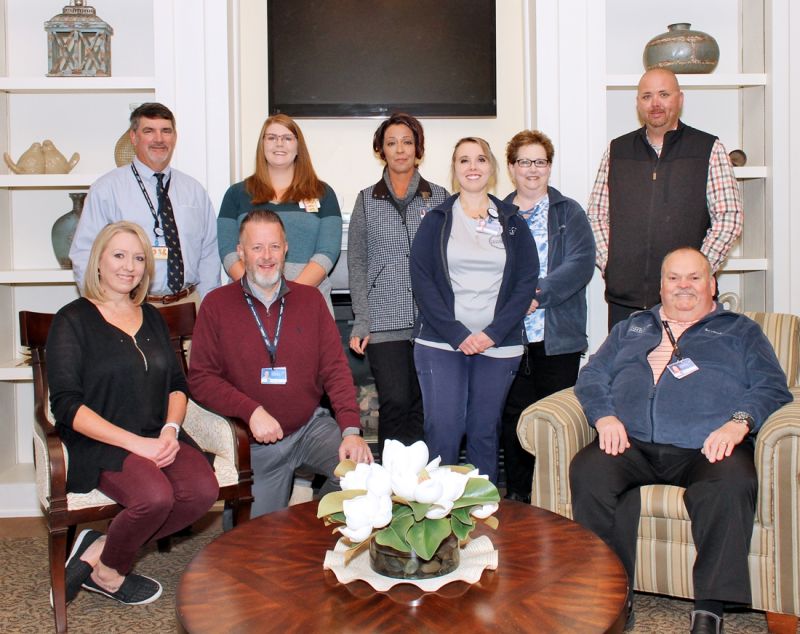Community Hospice provides comfort
People who are terminally ill often choose to forego further curative treatment to spend the rest of their lives in the relative comfort and familiarity of their own homes, surrounded by family and friends, said Norm Mast, president and CEO of the non-profit Community Hospice, headquartered in New Philadelphia.
“When there is nothing more that can be done — no more treatment that can improve their condition — people often decide that they don’t want to spend the rest of their days going through aggressive treatments for cancer or other conditions,” Mast said. “Hospice shifts the goal of treatment from curing the illness to providing comfort to the patient.”
Since it was established in 1986, Community Hospice has served more than 14,000 patients.
“We were started by a group of nurses and social workers who saw a need for hospice in our community,” Mast explained. “We started out at Union Hospital and have grown from serving 26 patients during our first year to now serving 1,300 to 1,400 patients every year.”
The hospice concept, Mast said, sprouted from a movement that began in England and spread to the U.S. in the 1970s and 1980s.
“Back then, when somebody was diagnosed with a terminal illness they were kind of put into the back of the hospital,” Mast said. “The attitude was that there’s not much we can do so we’re going to focus on the people we can save. It caused a lot of stress for families and patients who were left to deal with the situation without proper support and without knowing what has happening. A lot of hospices began to start up in the 1980s to address that problem.”
Today, Mast lamented, the Covid pandemic has brought the problem full circle, with many patients dying in hospitals and nursing homes, isolated and unable to see their families.
“One of the misperceptions about hospice is that it is only for the last days of a person’s life,” he said. “But hospice may be a preferred option for anybody with a terminal diagnosis of six months or less. The challenge is that many people aren’t getting the services they need early enough in the process. In order for us to help with pain and symptom management, and giving patients and their families the support they deserve, it’s usually beneficial to make the decision to enter hospice earlier in the process.”
To qualify for hospice care, two physicians — a Community Hospice staff physician and the patient’s doctor — have to agree that a patient is terminal with a life expectancy of less than six months.
“That doesn’t necessarily mean the patient will die within six months,” Mast said. “We’ve had patients who lived much longer. We’ve even had people graduate from hospice who were told they were going to die from Covid. They ended up graduating and they’re not on hospice anymore.”
Although Community Hospice operates a 12-bed in-patient facility in New Philadelphia, nearly all of its patients are served at home, in an assisted living facility or a nursing home.
“We come to take care of them wherever they call home,” Mast said. “When you choose to become a hospice patient, we manage your care, and everything that’s related to your illness is covered by hospice, including medications, medical equipment and supplies. Nursing visits, home health aides, social work visits — all those things are included in that hospice benefit through Medicare.”
Community Hospice has physicians and specially trained health providers on staff, but as the only non-profit hospice in Tuscarawas County, it is essentially a volunteer-based organization. And it doesn’t turn any patient away, regardless of their ability to pay, Mast said.
“We’re dependent on community support through grants, donations and fundraising,” he said. “Because we’re not here to make a profit, all of the money we receive goes back into our operations.”
Mast emphasized that if and when the time comes to transition into hospice, each person has the right to choose his or her own care provider.
You can call Community Hospice at 330-343-7605 to discuss whether hospice is right for you or a loved one. You also can learn more about Community Hospice by visiting MyHospice.org. Community Hospice and Truman House — its inpatient hospice facility — are located at 716 Commercial Avenue SW, in New Philadelphia. This story has been underwritten by Community Hospice.

